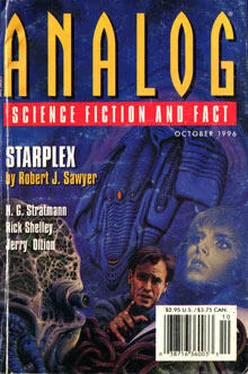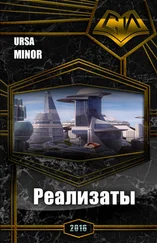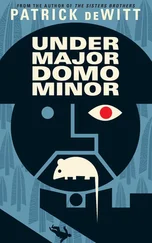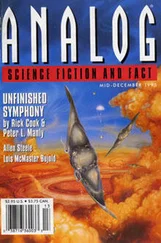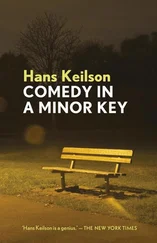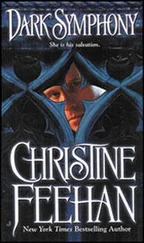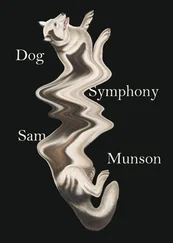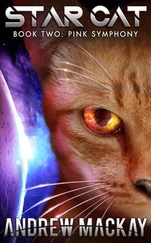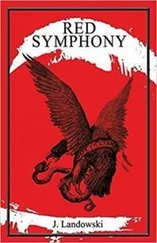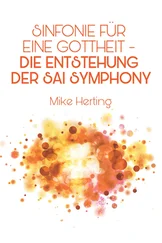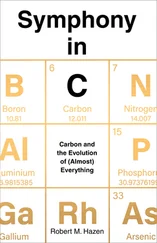H. Stratmann - Symphony in a Minor Key
Здесь есть возможность читать онлайн «H. Stratmann - Symphony in a Minor Key» весь текст электронной книги совершенно бесплатно (целиком полную версию без сокращений). В некоторых случаях можно слушать аудио, скачать через торрент в формате fb2 и присутствует краткое содержание. Год выпуска: 1996, Издательство: Dell Magazines, Жанр: Альтернативная история, на английском языке. Описание произведения, (предисловие) а так же отзывы посетителей доступны на портале библиотеки ЛибКат.
- Название:Symphony in a Minor Key
- Автор:
- Издательство:Dell Magazines
- Жанр:
- Год:1996
- ISBN:нет данных
- Рейтинг книги:5 / 5. Голосов: 1
-
Избранное:Добавить в избранное
- Отзывы:
-
Ваша оценка:
- 100
- 1
- 2
- 3
- 4
- 5
Symphony in a Minor Key: краткое содержание, описание и аннотация
Предлагаем к чтению аннотацию, описание, краткое содержание или предисловие (зависит от того, что написал сам автор книги «Symphony in a Minor Key»). Если вы не нашли необходимую информацию о книге — напишите в комментариях, мы постараемся отыскать её.
Symphony in a Minor Key — читать онлайн бесплатно полную книгу (весь текст) целиком
Ниже представлен текст книги, разбитый по страницам. Система сохранения места последней прочитанной страницы, позволяет с удобством читать онлайн бесплатно книгу «Symphony in a Minor Key», без необходимости каждый раз заново искать на чём Вы остановились. Поставьте закладку, и сможете в любой момент перейти на страницу, на которой закончили чтение.
Интервал:
Закладка:
It was this rule that Robbins was proposing to break in a very big way.
“—And that should answer your question!” Everett folded her arms.
The Chancellor looked as confused as the rest of them. “Then I take it you believe we can alter TCE’s past without changing our own?”
Everett’s face turned crimson. “Of course! That’s what I just said! Weren’t you listening?” Cowering like everyone else, Robbins thought it amazing that this short, grandmotherly woman with silver hair pulled back severely into a tight bun could make the lot of them—all experts in their fields, and several nearly her age—feel like grade-schoolers being scolded by a strict teacher.
“Let me put it even more simply. Transcosmic Earth was the timeline that initially produced us. But ever since a temporo-quantum event made our current Universe branch off from TCE, there’s no longer any ‘causal’ relationship between our timeline and TCE’s. Now, TCE is no longer the’ past, but only ‘a’ past—one we can change without affecting the unique past, or the present, of our own branch Universe. To use a crude analogy, just as a newborn baby, once its umbilical cord is cut, exists completely separately from its mother, and continues to exist despite what may happen to her, our Earth and its timeline now exist independent of TCE.
“What Dr. Robbins proposes will prove what I’ve been telling my denser colleagues and the executive committee for years. We won’t change our own remembered’ history, we won’t blink’ ourselves out of existence by changing TCE’s history!”
The Chancellor nodded politely. “Thank you, Dr. Everett.” She turned to the white-haired man seated on her left. “Dr. Harrison?”
Cecil L. Harrison, M.D. began, “Dr. Ertmann, the physician on my staff with the most experience in field work on TCE, made a series of nocturnal visits to the subject’s apartment starting two years before he died and collected blood samples while he was sleeping. Postmortem tissue samples and ascitic fluid were also obtained hours after he died. Our analysis of the specimens confirmed the opinion of his own physicians that he died of liver failure. However, they erroneously believed it was due to alcohol abuse or syphilis. Using tests not available in the nineteenth century, Dr. Ertmann and I found it was actually caused by chronic active hepatitis, from an infection with the hepatitis B virus he contracted no more than fifteen months before he died.
“Thus, to prevent his death, we only need to give him an injection of an appropriate medicine at least a month before he was infected. Nanoscrubbers block entry of viral DNA into cells, and have a success rate of nearly 100 percent. However, scrubbers stay in the blood and other bodily fluids, and anyone else exposed to them after he was injected could also become immunized. Since it was emphasized to me that only the subject himself should be affected by what we do, I suggest immunoboosted hepatitis B vaccine be used instead. Its average success rate is still 95 percent, and it wouldn’t affect anyone besides him.”
Harrison coughed. “Bear in mind, however, that at the time he died he had other medical problems which, even if we prevent him from dying of hepatitis, will still eventually kill him. I estimate he’ll live about five, and certainly no more than ten extra years.”
“Thank you, Dr. Harrison,” the Chancellor continued. “Our guests tell us there’s no technical reason why Dr. Robbins’s proposal can’t be done. Now we must consider whether we should do it. Drs. Robbins and Brentano have already expressed their positions. Are there any other comments?”
Now, Robbins thought, was the moment of truth. Brentano was adamantly against it. But right now it was dangerous, politically speaking, for anyone to side with her. She and the philosophy and theology section she headed had been in disgrace with the executive committee since their report on what really happened at Lourdes in 1858 had leaked to the public. The Vatican had shrugged it off, saying no official articles of faith were involved, just a popular tradition. But the crowds protesting outside the Institute compound, and whoever had sent the bomb threats, disagreed. The formal complaint sent by the French government, presumably on behalf of their tourism industry, hadn’t helped either.
Lytton and Shimura should be on his side. If his proposal was approved and set a successful precedent, they had similar proposals of their own to submit.
Billingsley, as always, was an enigma.
Shimura said, “Dr. Lytton and I strongly support Dr. Robbins’s proposal.”
The Chancellor nodded at Billingsley. The latter, easily the youngest person at the table, adjusted his bow tie and horn rimmed glasses, and ran a hand through short greasy hair. “I’m ambivalent. If Howie’s plan works, I can think of projects I’d like to do, too. Like go to Earth-Two and tell the Big Bopper and his pals to not get on that plane.”
The big what? Robbins thought.
“But Toni”—he nodded at Brentano—“is afraid we’re not smart enough to know what will happen if we change Earth-Two’s past, and that we might screw things up. Based on the kind of literature I know best, I have to agree with her that violating the Prime Directive wouldn’t be a good idea. We shouldn’t risk turning the people there, or maybe even us, into lizards.”
Into what? Robbins found Billingsley’s sophomoric obsession with “popular culture” of the last century very irritating. While the other humanities sections were recovering things of real cultural value on TCE, the sociology section Billingsley headed wasted its time scanning old “films” and recording episodes of twentieth-century radio and television programs that were probably better left lost. Billingsley defended the “scholarly” nature of these projects, saying, “The best way to understand a society is to see what its people enjoy, what they consider entertainment.” But, Robbins suspected, the real reason the powers-that-be tolerated it was that those samples of pre-Digital Revolution “entertainment” were wildly popular on the public Nets—and the Institute collected a royalty each time one was downloaded. Besides, how much scholarship could you expect from someone whose doctoral thesis was entitled, “The Role of the Tropicana Club as a Microcosm of Early 1950s American Society in ‘I Love Lucy’ ”?
And Robbins hated it when Billings ley used terms he didn’t understand. He made a mental note to run a Net search on what “Prime Directive” referred to.
The Chancellor said, “Dr. Velikovsky?”
Robbins tensed. Velikovsky, of the history section, was the pivotal vote.
The latter began, “This is not an easy decision. Even a tiny, critical change in TCE’s past could have great, perhaps very negative repercussions for its later history. I can’t be certain whether saving this particular individual would be such a change. Those extra’ ten years Dr. Harrison referred to were relatively quiet, politically speaking, in his own country—though not elsewhere in Europe. While the subject himself was something of a political revolutionary, it’s difficult to see how he could affect the course of the various revolutions that occurred in Europe in 1830 and 1831. Conversely, if he were to live to 1848 or 1849, when even more critical events occurred—well, that would be even harder to predict. In that case, I would have to vote ‘no’ to Dr. Robbins’s proposal.
“However, since Dr. Harrison is convinced he’ll die no later than the 1830s, at this time I’m inclined to favor Dr. Robbins’s proposal.”
The Chancellor said, “Any other comments?”
Brentano again. “I’d like to remind everyone that the decision we make today might, as Dr. Robbins said, ‘enrich’ both our world and TCE—or it could destroy them. Even if we do have much to gain, is it worth such a terrible risk?”
Читать дальшеИнтервал:
Закладка:
Похожие книги на «Symphony in a Minor Key»
Представляем Вашему вниманию похожие книги на «Symphony in a Minor Key» списком для выбора. Мы отобрали схожую по названию и смыслу литературу в надежде предоставить читателям больше вариантов отыскать новые, интересные, ещё непрочитанные произведения.
Обсуждение, отзывы о книге «Symphony in a Minor Key» и просто собственные мнения читателей. Оставьте ваши комментарии, напишите, что Вы думаете о произведении, его смысле или главных героях. Укажите что конкретно понравилось, а что нет, и почему Вы так считаете.
